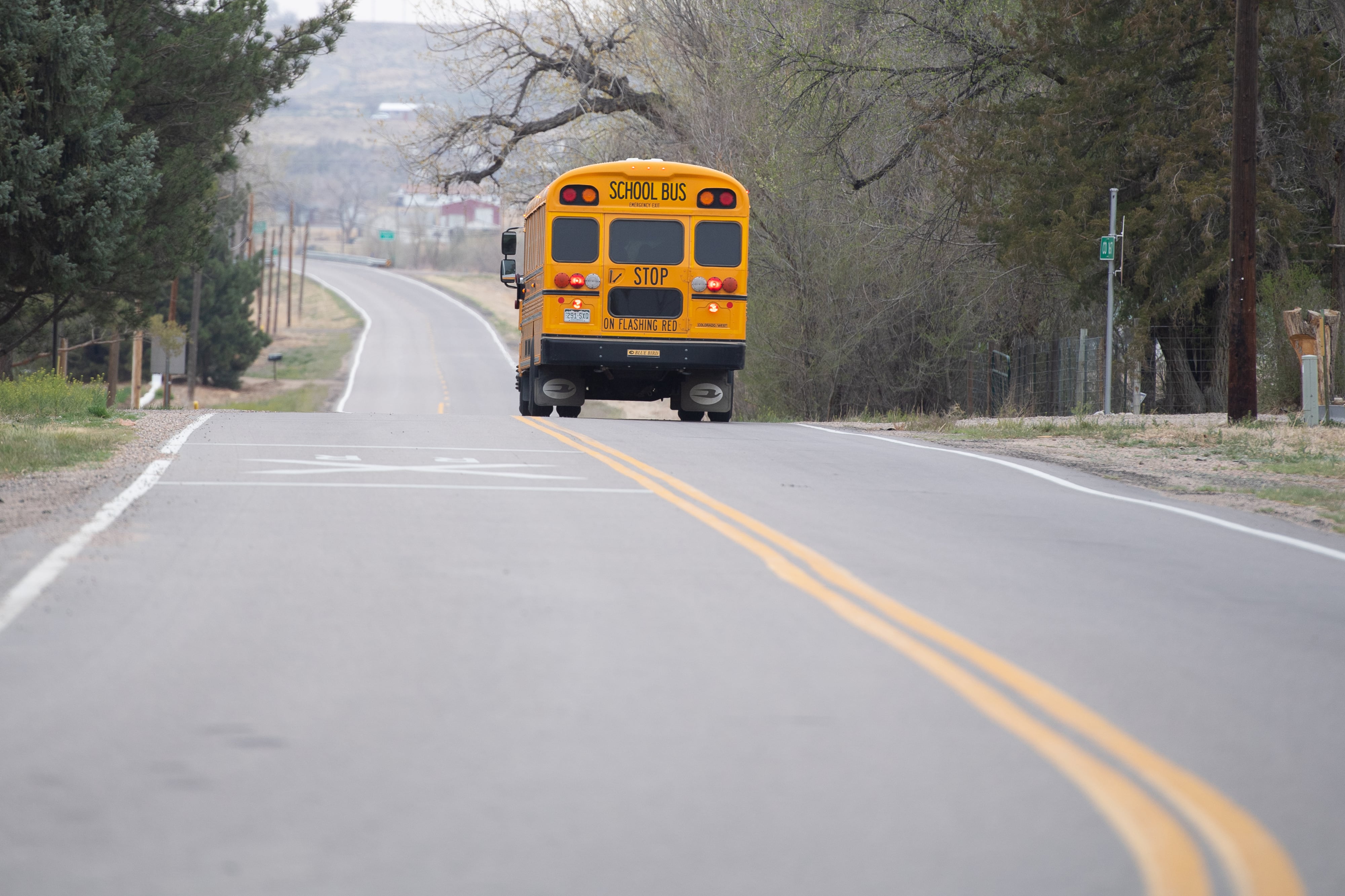Sign up for Chalkbeat Colorado’s free daily newsletter to get the latest reporting from us, plus curated news from other Colorado outlets, delivered to your inbox.
A rural school district in southwest Colorado on Tuesday removed nondiscrimination policy protections for LGBTQ people, following a Trump administration push to eliminate such safeguards.
The school board in the conservative-leaning Montezuma-Cortez district unanimously approved changes removing references to “sexual orientation, gender identity, and gender expression” from the policy. Also at Tuesday’s meeting, the board introduced a policy that would ban transgender students from joining school sports that match their gender identity — one that could permanently replace an emergency version adopted by the board in June.
Such moves are growing more common in school districts around the country, spurred by new federal policies and a charged political environment that’s elevating culture war issues to the top of the agenda in some communities. Montezuma-Cortez, along with two other Colorado districts, three charter schools, and a Board of Cooperative Educational Services are now seeking to join a lawsuit over the issue of transgender student athletes.
District 49 in the Colorado Springs area spearheaded the lawsuit in May, suing the state and the Colorado High School Activities Association over policies that allow transgender youth to play on school sports teams that match their gender identity.
Court documents filed Tuesday indicate that the Montezuma-Cortez, Academy 20, and Colorado Springs 11 districts, along with Monument Academy, The Classical Academy, James Irwin Charter Schools, and Education ReEnvisioned BOCES, have asked to join as plaintiffs.
Sherri Wright, who represents western and southern Colorado on the State Board of Education and previously worked as a teacher in Cortez, weighed in against transgender girls on girls sports teams at the Montezuma-Cortez board meeting Tuesday.
“We do not need to endanger our girls,” she said, citing the possibility of injury if cisgender girls and transgender girls play sports together.
There’s no nationwide data showing the number of transgender girls who compete on girls teams at school or the number of injuries that occur in such situations.
Trump has targeted transgender rights since his first day in office, but many legal experts say his administration cannot, on its own, exclude transgender people from federal anti-discrimination law and that Colorado law, which includes protections for LGBTQ people, supersedes school district policy anyway.
Still, they say efforts to remove LGBTQ protections at the local level send harmful messages about who is valued and deserves protection from discrimination.
At a May school board meeting in Montezuma-Cortez, board member Mike Lynch said the policy change was needed because of Trump’s threats to withhold funding from schools that “support certain previously protected classes like sexual orientation, gender expression, or gender identity.” He later clarified that Trump has not threatened to withhold funding over protections based on sexual orientation. Still, the term wasn’t restored to the policy.
Lynch, who chairs the district committee that drafted the new nondiscrimination policy, said not every group must be explicitly named in the policy to have protection from discrimination.
Noting that the policy talks about unlawful discrimination, he said, “If it is unlawful to discriminate on the basis of sexual orientation, then the policy covers it.”
The policy adopted Tuesday now cites 10 instead of 13 protected characteristics in a section prohibiting harassment. The 10 include disability, race, creed, color, sex, marital status, national origin, religion, ancestry, or need for special education services.
Some community members objected to the nondiscrimination policy changes.
Emily Christenson, a parent in the 2,400-student district, said even though Colorado law contains protections based on sexual orientation, gender identity, and gender expression, including the terms in school district policy is important.
“You may feel … that it’s redundant to list them there, but to remove only some of the protected classes from your policy clearly states that you condone harassment inflicted upon these groups of our community,” she said.
Cayce Hamerschlag, who spoke about both the nondiscrimination policy and the transgender student athlete policy, said the board is choosing to deny rights to some students with no legal requirement to do so.
“In the spirit of transparency,” she told the board, “perhaps you should change your slogan from ‘Every Student. Every Day.’ to ‘Certain Students. Some Days.’”
Ann Schimke is a senior reporter at Chalkbeat, covering early childhood issues and early literacy. Contact Ann at aschimke@chalkbeat.org.






